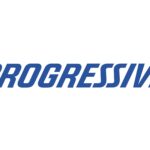The States appear poised, through inaction, to leave untold millions of dollars in premium tax revenue “on the table” when the Nonadmitted Insurance and Reinsurance Reform Act (NRRA) becomes the law of the land on July 21, 2011. Under Subtitle B of the Dodd-Frank Wall Street Reform and Consumer Protection Act, as of that date, “No state other than the home state of an insured may require any premium tax payment for nonadmitted insurance” (Section 521(a)).
The term “home state” is generally defined to mean the state in which the insured maintains its principal place of business or where the insured resides in the case of an individual (Section 527(6)(A)(i)). If 100 percent of the insured risk is located elsewhere, the home state is where the largest percentage of premium is attributed under the insurance contract (Section 527(6)(a)(ii)). For “affiliated groups,” the home state is where the named insured member with the largest proportion of premium is located (Section 527(6)(B)).
Although federal prohibitions such as 521(a) are effective immediately, not all state law is automatically preempted by an act of Congress. Where a federal law authorizes certain state action in aid of a federal regulatory scheme, each state must enact implementing legislation
Under existing state laws, the premium for multi-state risks is taxed based on the portion of premium allocable to each individual state. Because the NRRA does not automatically alter those laws effective July 21, 2011, the home state will continue to tax only a portion of the premium for multi-state risks unless it enacts new legislation.
The surplus lines industry did not seek to reduce state premium tax revenues through its support of the NRRA. Instead, the industry sought only a uniform system for taxing nonadmitted insurance premium to reform longstanding conflicts among state laws.
The states, however, can easily protect themselves from a clearly unintended consequence of federal preemption by promptly updating their premium tax laws to take account of the “home state” implications of the NRRA. If they do not, the full amount of nonadmitted premium allocable to non-home states will altogether escape premium tax.
To be sure, purchasers of nonadmitted insurance covering multi-state risks no doubt will enjoy the resulting tax savings windfall.
Home State Taxation
The NRRA merely prohibits states other than the home state from imposing a tax on nonadmitted insurance premium. It permits — but does not require — the home state to tax 100 percent of the nonadmitted insurance premium for multi-state risks. Indeed, the home state is free to impose no tax at all on nonadmitted insurance premium for out-of-state risks. That appears to be the present state of affairs.
The NRRA also provides that “[t]he states may enter into a compact or otherwise establish procedures to allocate among the states the premium taxes paid to an insured’s home state (Section 521(b)(1)). But there will be no premium tax to allocate to sister states unless the home state taxes 100 percent of the nonadmitted premium without regard to risk location, foreign or domestic.
California presently taxes only that portion of nonadmitted insurance premium allocable to California. The law says:
“For the purpose of determining [nonadmitted insurance premium] tax, the total premium charged for all such nonadmitted insurance placed in a single transaction … shall be allocated to this state in such proportion as the total premium on the insured properties or operations in this state, as computed on the exposure in this state on the basis of any single standard rating method in use in all states or countries where such insurance applies, bears to the total premium so computed in all states or countries in which such nonadmitted insurance may apply” (California Insurance Code § 1775.5(b)).
Assuming California law remains unchanged, when California is the home state for a multi-state placement made on or after July 21, 2011, there will be no way for California to collect the entire premium tax on multi-state placements. Instead:
- California will tax only a portion of the total nonadmitted insurance premium and its tax revenues will be the same as pre-NRRA.
- No other state may tax the non-California portion of the premium and California presumably will not be inclined to allocate premium tax it did not collect to other states.
Nationwide premium tax revenues will thereby be necessarily reduced pending enactment of appropriate legislation by each state. Such a revenue shortfall is likely to further complicate the ongoing negotiations among the states to devise a uniform premium tax allocation methodology. And, such a revenue shortfall is not something the states should find desirable in today’s difficult economic environment.
Simplified Administration
Effective July 21, 2011, surplus lines broker compliance with state premium tax requirements for multi-state placements should be straightforward.
The surplus lines broker will calculate the tax due to the home state based on the home state’s tax laws in effect at the time of the placement (i.e., the effective date of the policy), collect that amount of tax from the insured, and remit the tax to the home state in the ordinary course.
If other states should seek to collect premium tax, they should be referred to Section 521(a) of the NRRA and the express preemption of state premium taxation authority that appears in Section 522(c).
Congress did not intend the NRRA to adversely affect state premium tax revenues. It is, however, the responsibility of the states to protect themselves. They may and should do so by timely updating their tax laws to capture 100 percent of nonadmitted insurance premium where they are the home state. If they do so, there should be substantial premium tax receipts available to allocate among the states if, as, and when they reach agreement on an appropriate allocation mechanism. The surplus line industry in California will be watching closely how Insurance Commissioner-Elect Dave Jones and his administration deal with this issue once they take office.
Richard Brown, an insurance regulatory attorney based in San Francisco, has authored multiple amicus briefs on important surplus lines issues for industry trade organizations, is the architect of California Insurance Code §1780.50 (Surplus Line Advisory Organization), and recently revised the Constitution of the Surplus Line Association of California in its entirety. Contact information appears on his Web site at www.InsuRegulatory.com.
Was this article valuable?
Here are more articles you may enjoy.


 Progressive Records Five-Fold Increase in Q1 Net Income
Progressive Records Five-Fold Increase in Q1 Net Income  Cargo Owners in Baltimore Disaster Face ‘General Average’ Loss Sharing, MSC Says
Cargo Owners in Baltimore Disaster Face ‘General Average’ Loss Sharing, MSC Says  Supreme Court Makes It Easier to Sue for Job Discrimination
Supreme Court Makes It Easier to Sue for Job Discrimination  Harvard Study Again Stirs the Pot on Demotech Ratings of Florida Carriers
Harvard Study Again Stirs the Pot on Demotech Ratings of Florida Carriers 


